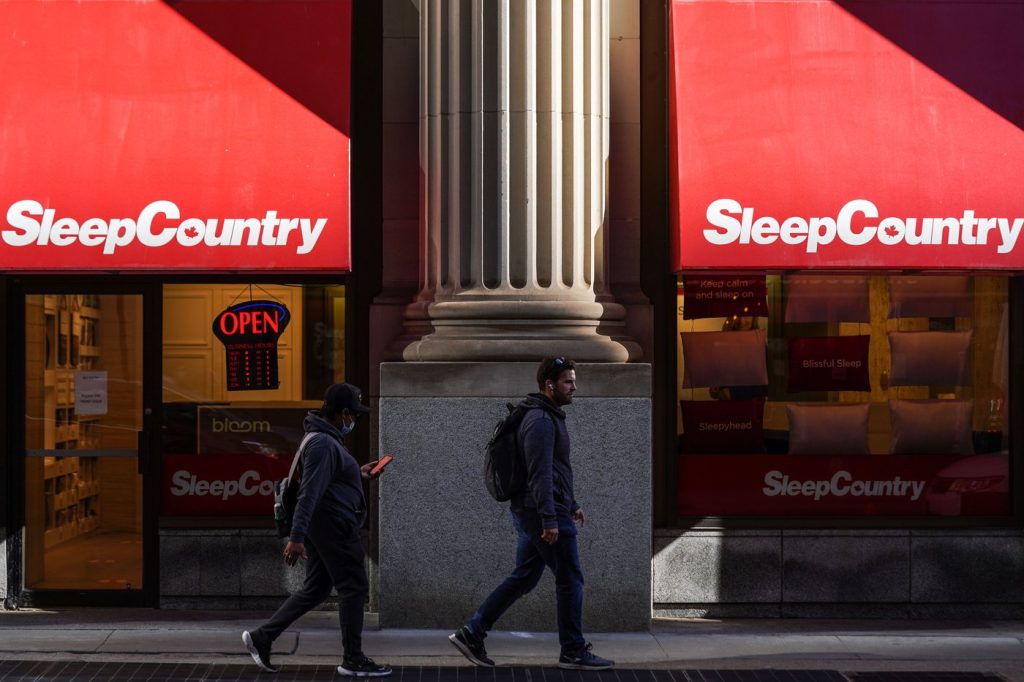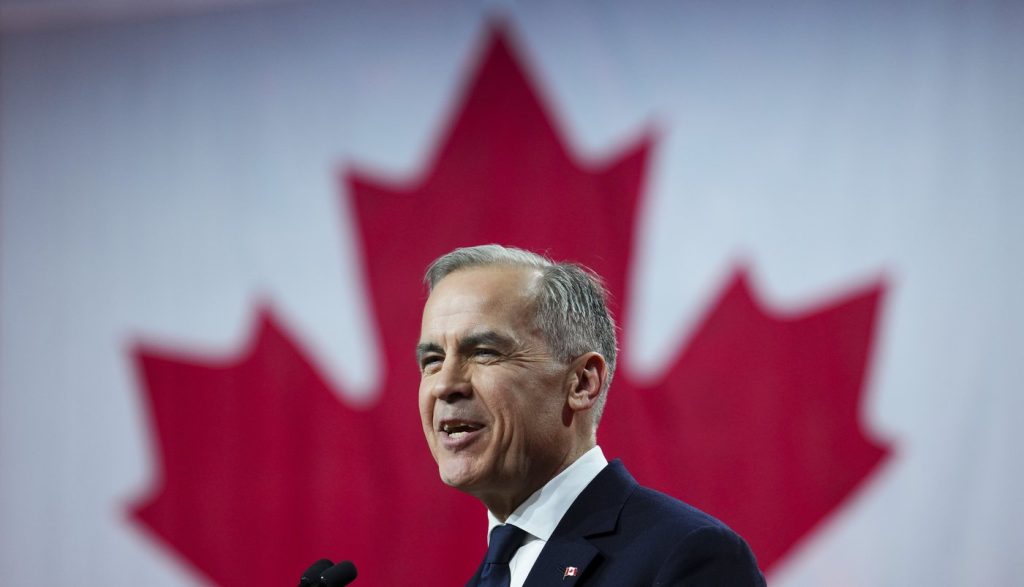Sleep Country to be acquired by Fairfax Financial for $1.7 billion

Posted Jul 22, 2024 07:59:37 AM.
Last Updated Jul 22, 2024 05:10:15 PM.
TORONTO — After fielding calls from private equity firms looking to buy Sleep Country Canada Holdings Inc. over the years, CEO Stewart Schaefer has chosen to sell to Fairfax Financial Holdings Ltd. for $1.7 billion in a deal he says will “unleash” its true value.
The deal announced Monday would see a subsidiary of the Toronto-based financial holding company acquire all issued and outstanding common shares of Sleep Country for $35 per share, a 28 per cent premium to Friday’s closing share price.
While the press release announcing the agreement did not detail Fairfax’s plans for the mattress retailer, Schaefer said Fairfax doesn’t plan to change anything.
“One of the things that was the most appealing to us is they said ‘Nothing’ (when asked about potential changes),” Schaefer said in an interview with The Canadian Press.
“It appears as though they have an enormous amount of respect for the brand that has been built.”
That mean’s Schaefer, who is staying on to run Sleep Country, doesn’t anticipate job cuts nor store closures under new ownership.
“If anything, it’s the opposite,” he said. “Maybe this will even accelerate our growth.”
Schaefer’s remarks come as Sleep Country marks its 30th anniversary year. The chain began with a single mattress store in Vancouver that opened in 1994, but eventually became a household name in Canada alongside co-founder Christine Magee who starred in a steady stream of company advertisements.
The company now counts 307 stores and 18 warehouses across its collection of brands. Those brands include retailers Sleep Country and Dormez-vous, bed-in-a-box companies Endy, Casper Canada and Silk & Snow, premium bedding chain The Rest and blanket company Hush.
In recent years, the company has faced increased competition with the growth of online companies selling boxed mattresses they deliver to homes. Shoppers have also been putting off big-ticket purchases like mattresses lately because of high inflation, borrowing costs and mortgage rates.
Despite the headwinds, Schaefer said Sleep Country wasn’t looking to sell itself, though private equity suitors always lurked, especially when the stock sagged.
“You always get that type of phone call that someone thinks they can maximize value, but not necessarily at the value we believe that this company is,” he said. “So it was never really a true interest for us.”
That is until late last year.
Around that time, Schaefer recalls sitting in the Ottawa airport and receiving a message from Sleep Country’s chief financial officer, who said an investor group was keen to have a call.
Schaefer only later learning of the Fairfax connection. Talks between the pair ebbed and flowed. Sometimes they’d go months without a development.
Yet he had a good feeling about Fairfax. He liked its Canadian origins and admired founder Prem Watsa, who reportedly sold air conditioners and furnaces to finance his university education.
Watsa is now a billionaire businessman dubbed the “Canadian Warren Buffet” because of Fairfax, a purveyor of reinsurance and property and casualty insurance.
However, Fairfax is also known to dabble in retail deals.
The company once owned Toys “R” Us Canada and has had majority stakes in Sporting Life and Golf Town. It has also purchased and taken private Recipe Unlimited Corp., a Vaughan, Ont., company behind more than 20 restaurant brands including Swiss Chalet, Harvey’s and The Keg.
Watsa, chairman and chief executive of Fairfax, said in a press release that his company looks forward to working with Schaefer and Sleep Country “to further develop this remarkable Canadian success story over the long term.”
Schaefer said Sleep Country went for Fairfax’s deal because the company “respected” the bedding giant’s business and 1,700 workers and realized its share price was “undervalued.”
The Friday before the deal was announced, Sleep Country’s share price closed at $27.28. News of the deal pushed Sleep Country’s share price up about 27 per cent, or $7.39, to close at $34.67 on Monday. Fairfax’s share price closed less than one per cent higher to $1,598.14.
Martin Landry, Stifel’s managing director of equity research, thinks the valuation attached to the Fairfax deal is “slightly opportunistic” considering Sleep Country is a prominent player in the Canadian mattress industry with an estimated 40 per cent market share.
“The company is well entrenched, allowing it bargaining power with mattress manufacturers,” he wrote in a note to investors. “This translates into much higher profitability than other North American retailers in the bedding industry.”
Asked about Landry’s views, Schaefer said “we don’t manage the business based on the stock price, obviously because it could be frustrating.”
Schaefer pointed out that only twice in Sleep Country’s history has its share price traded above $35 — in 2017 and at the peak of COVID in 2021 — and even as the business has grown, that hasn’t always shown up in its valuation “for whatever reason.”
Magee, who chairs a special committee of independent directors, appears to agree, saying in a press release she feels the transaction will provide “immediate value to shareholders.”
Sleep Country, however, has left the door open to other offers. It says it can terminate the agreement and accept a superior proposal in some unspecified circumstances, though Fairfax will have the right to match any offer.
In the event Sleep Country finds a better suitor, it will pay Fairfax a termination fee of $36.5 million.
“We believe that there are only a limited number of strategic players capable and interested in acquiring Sleep Country,” Landry wrote in his note.
“Tempur Sealy is the obvious strategic player that comes to mind. However, the timing for Tempur Sealy is not optimal as the company is dealing with antitrust concerns while trying to close the acquisition of Mattress Firm.”
Should Sleep Country move forward with Fairfax, it expects the deal to close in the fourth quarter of 2024. The agreement is subject to court approval and other customary conditions, including a shareholder vote.
Once completed, Sleep Country will apply to delist from the Toronto Stock Exchange.
This report by The Canadian Press was first published July 22, 2024.
Companies in this story: (TSX:ZZZ, TSX:FFH)
Tara Deschamps, The Canadian Press








